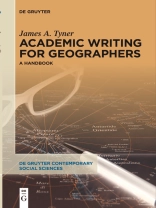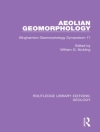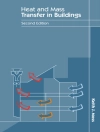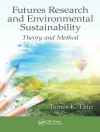There are many ‘how-to’ books on writing for academics; none of these, however, relate specifically to the discipline of geography. In this book, the author identifies the principle modes of academic writing that graduate students and early-career faculty will encounter – specifically focusing on those forms expected of geographers, that is, those modes that are reviewed by academic peers.
This book is readily accessible to senior undergraduate and graduate students and early-career faculty who may feel intimidated by the process of writing. This volume is not strictly a ‘how-to’ or ‘step-by-step’ manual for writing an article or book; rather, through the use of real, concrete examples from published and unpublished works, the author de-mystifies the process of different types of scholarly pieces geographers have to write with the specific needs and challenges of the discipline in mind.
Although chapters are thematic-based, e.g., stand-alone chapters on book reviews, articles, and books, the manuscript is structured around the concept of story-telling, for it is the author’s contention that all writing, whether a ‘scientific’ study or more humanist essay, is a form of story-telling.
Об авторе
James A. Tyner is a professor of geography at Kent State University and fellow of the American Association of Geographers. In 2021 he received the AAG’s Distinguished Scholarship Award and in 2014 he received Kent State University’s Outstanding Research and Scholarship Award. To date, he has published widely within the field of geography. He has authored 21 books and co-authored a 22nd monograph; co-edited two books; written approximately 100 refereed articles and book chapters; and dozens of book reviews and encyclopedia entries. His book
War, Violence, and Population: Making the Body Count (New York: The Guilford Press, 2009) received the Meridian Award, the American Association Geographers’ highest book award for outstanding scholarly contribution to the field of Geography. He has twice received the Julian Minghi Award, conferred by the Political Geography Specialty Group of the AAG, for outstanding scholarly contribution to the study of political geography: the first for his book
Iraq, Terror, and the Philippines’ Will to War (Boulder, CO: Rowman & Littlefield, 2005) and the second for his book
The Politics of Lists: Bureaucracy and Genocide under the Khmer Rouge (Morgantown, WV: West Virginia University Press, 2019). In addition, he received the Virginie Mamadouh Outstanding Research Award for best journal article (2017).












